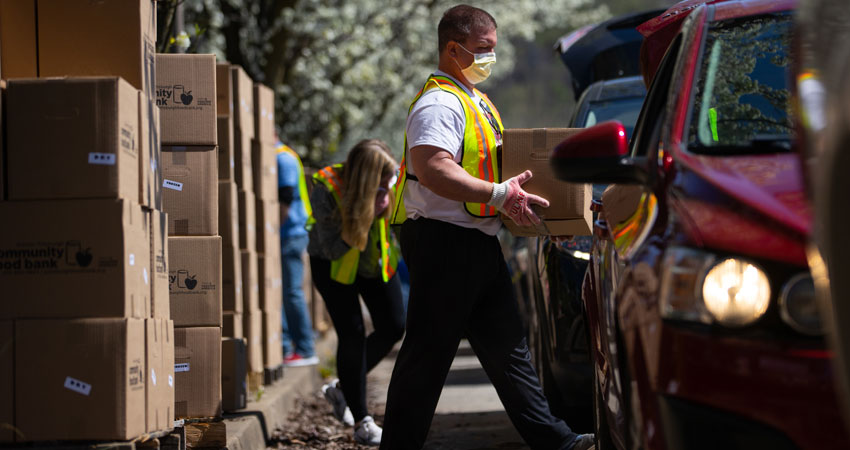
I am often struck by the elegance and timeliness of a particularly well-expressed idea. I had that reaction when I read Phil Buchanan’s spirited defense of the nonprofit sector in Giving Done Right, and Anand Giridharadas’s fierce critique in Winners Take All of the notion that mega-philanthropy is a legitimate substitute for engaged public policy.
Both books came to mind for me last week because of separate events that only now strike me as connected. The first was a passing comment from a corporate CEO dismissing service-minded nonprofits for setting excessively modest goals compared to the more ambitious stretch goals embraced by for-profits.
It was the sort of lazy, misplaced arrogance that Phil routinely lays to waste in his book and blogs. Not only was the distinction factually wrong—nonprofits routinely embrace hugely ambitious goals—so was the implication that for-profit behavior is the missing ingredient in nonprofit excellence. (Full disclosure: I chair Phil’s board at the Center for Effective Philanthropy.)
When I heard that comment, I instantly thought of the army of nonprofits that immediately swung into action in our community as the current crisis hit. Their stretch goals may not look like the for-profit arena’s, but you can sure bet those organizations and the people who lead and staff them are motivated by bold intent. At its best that intent is to transform the systems through which society keeps perpetuating senseless need and inequity.
In a moment like this, though, it tends to be more responsive and looks like feeding record numbers of hungry people, finding ways to protect staff and volunteers who are putting themselves at risk to serve others, figuring out how to shelter COVID-positive homeless populations, helping families to stay in their homes despite the loss of jobs and income, delivering health care to those who are sick, looking out for older people isolated in their homes, arranging child care for the essential workers staffing everything from our hospitals to our grocery stores, knitting together community in a thousand different ways, and on down a list of activities that are literally keeping people alive and our society from coming unglued.
Sounds pretty “stretch” to me.
It needs to be said that many for-profits in our community are stepping up as invaluable partners with generous offers of money, know-how, leadership and assistance—and just by continuing to operate, sometimes heroically. That merits tremendous gratitude and respect. It is also worth noting that some of the best nonprofits in this moment are the ones that have been most rigorous about their finances over the years and have treated their operations in a disciplined fashion.
Thankfully, however, those nonprofits have also held onto an understanding that they are fundamentally different. Their mission is, at core, to do what society does not routinely appreciate or value with money until it is threatened, and sometimes not even then. What sets these organizations apart, and the people who work in them, is that they will sacrifice almost anything to do the impossible on behalf of the forgotten and the ignored. You don’t make money that way; you just make things better. And that, too, deserves deep gratitude and respect.
The same day that CEO made his comment a colleague from Colorado sent me a photo of some socks he had just been given. They were inscribed, “Busy making a (bleeping) difference.” I wanted to send a pair of those socks to every nonprofit head I know, with a note thanking them for making THAT their mission right now, for being who and what they are. (I didn’t, of course; a pair of socks is insultingly low on the list of what they need now.) Those nonprofit leaders and workers embody the very best of how America is rising to the challenge of this moment.
And yet.
That is only half the story.
The second event came in the form of an opinion piece carried by a national news organization that praised The Heinz Endowments and other foundations in Pittsburgh and around the country for moving swiftly to marshal “massive sums of money” to support relief efforts. I agreed with many of the columnist’s points, including her assertion that philanthropy can be “more agile, responsive and nimble than government.”
However, at the risk of appearing ungrateful for the acknowledgement, I disagreed profoundly with the editorial’s main thrust, which offered America’s philanthropic generosity as a kind of alternative to more robust government. It is absolutely true and even praiseworthy that foundations and philanthropists have acted quickly and aggressively in this crisis to save lives, meet basic needs, protect our communities and stem the economic hemorrhaging.
But—and this is where Winners Take All comes in—it is frankly silly to suggest that the vigor of that response somehow alleviates the need for strong government action. As someone privileged to serve as president of a large foundation, I am keenly aware of the limits of our reach, especially in a moment like this. Every system and organization our foundation funds or partners with is in deep existential crisis. The level of need, even after the recent stimulus bill, is staggering to the point of paralyzing. No amount of philanthropy could plug this hole.
Nor should we want that. Philanthropy and the vibrant nonprofit sector it supports are not—and should not be—a substitute for government or responsible social policy, which in a democracy expresses collective goods and shared values. As a human, I am profoundly grateful to Bill Gates for stepping into the hunt for a COVID-19 vaccine, for example, and I deeply appreciate his thoughtful and long-standing commitment to using his wealth to eradicate disease. But as a citizen I am also mindful that we shouldn’t have to depend on philanthropy to invest in vital scientific and medical research, robust public health systems, or the assurance of basic human rights to food, shelter, education, health care and a life-sustaining environment.
We see this profoundly at the local level in this moment. Leadership in the county where our foundation is based has come from a strong local government response that has been driven by informed leaders who are basing their actions on science and data, communicating openly and well, and deploying their significant assets at a scale philanthropy can support and even improve but never replace.
That is how two odd little moments in a week of dizzying challenges came together for me and helped me appreciate something important about this moment. I am so intensely proud of and grateful for how America’s civil society—all the people and organizations that the Endowments and all other foundations are privileged to work with or know—are stepping up in this hour of need in a way that only they can or will.
But I am also mindful of the intolerable racial and economic inequities this crisis is worsening and laying bare once more. In her book A Paradise Built in Hell, Rebecca Solnit describes how Americans’ capacity to come together in the face of catastrophe models the sort of society we could become if only we would hold onto that spirit of mutual caring. For that, we need government and public policy; for that, we need to structure our sociopolitical life—and not just our giving—in a way that values our humanity as much as our economics.
Decades ago, Martin Luther King Jr. framed the best “stretch goal” I have ever heard for all true philanthropy, which is to eliminate the conditions that make it necessary in the first place. Whether that is even conceivable, I leave to better and more optimistic minds than mine, but of this I am certain: what we need now is the unique strengths of every sector in our society—for-profit, nonprofit and government—working together not just to get past this crisis but ultimately to prevent its recurrence and the perpetuation of the harms it has both caused and revealed.
Written by:

Grant Oliphant
President
